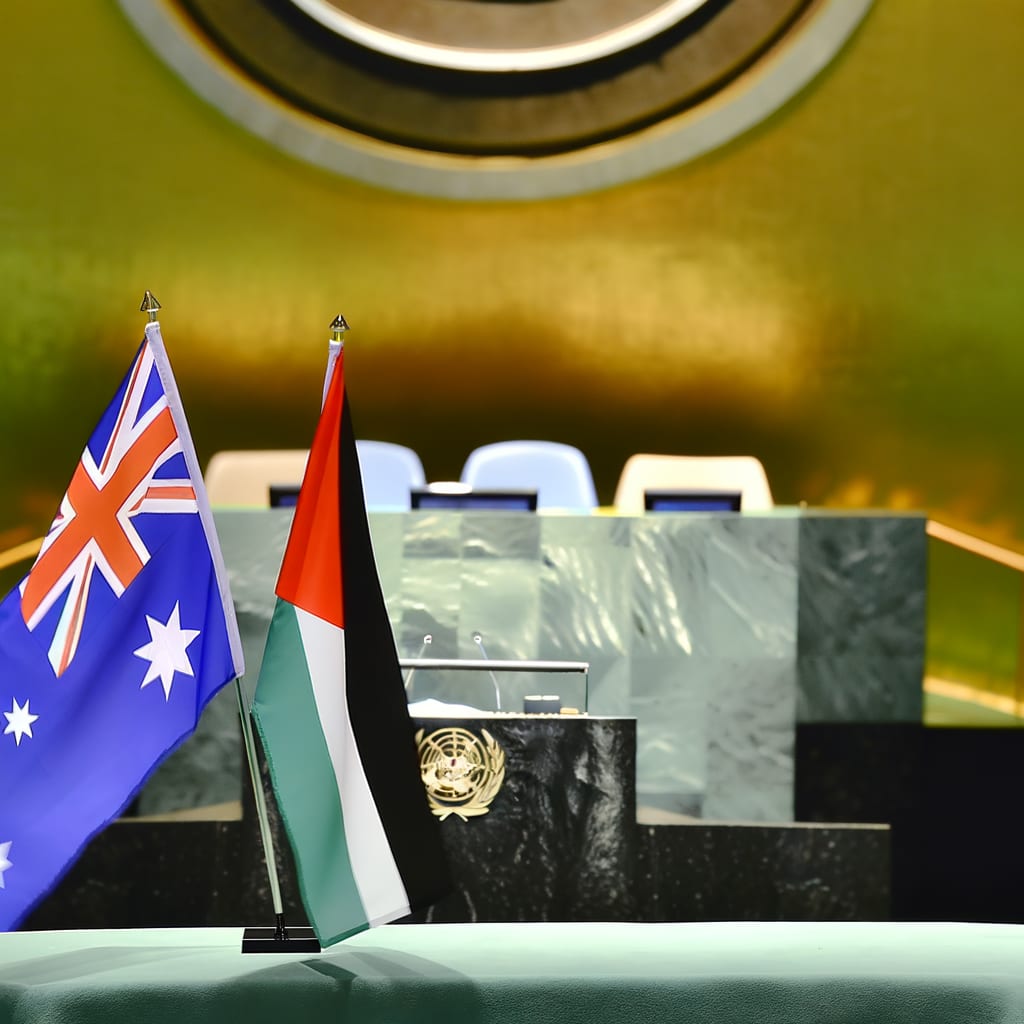Australia to Recognize Palestinian State at UN, New Zealand May Follow
Australia will recognize the Palestinian statehood at the United Nations General Assembly in September, Australian Prime Minister Anthony Albanese confirmed. The move follows similar announcements from France, Britain, and Canada. However, the decision has sparked mixed reactions, with some applauding it as a step towards a two-state solution, while others warn it could complicate future peace efforts.
Context and Background
Australia's decision to recognize Palestinian statehood is part of a coordinated global effort to resolve the Middle East conflict based on a two-state solution. Albanese stated this recognition was predicated on commitments
from the Palestinian Authority, including the demilitarization of Gaza and the holding of elections, with no role for Hamas in a Palestinian government.
"A two-state solution is humanity’s best hope to break the cycle of violence in the Middle East and to bring an end to the conflict, suffering, and starvation in Gaza,” Albanese said. This announcement comes in the context of an international push, led by Saudi Arabia, to recognize Palestinian statehood.
Key Developments and Details
The Australian Prime Minister announced that his country would provide this 'concrete contribution to create momentum', during the session of the United Nations General Assembly, in September. Meanwhile, New Zealand may also follow suit, with a decision expected from its cabinet next month.
The commitments Australia has received from the Palestinian Authority include the demilitarization of Gaza and the holding of elections – with no role for Hamas in a Palestinian government. Australia has designated Hamas a terrorist entity and Albanese repeated Monday his government's calls for the group to return Israeli hostages held since the Oct. 7, 2023 massacre.
Implications and Reactions
The decision, however, has sparked a range of reactions. While some consider it a step towards peace, others see it as a potential obstacle for future peace efforts. The Australia Palestine Advocacy Network dubbed the move a “political fig leaf” and called on the government to cut ties with Israel.
The Israeli ambassador to Australia has criticized the move, stating that it 'undermines Israel's security'. Conversely, other countries such as France, Britain, and Canada have also announced similar initiatives to recognize Palestinian statehood.
Conclusion
As Australia prepares to formally recognize the Palestinian state at the upcoming United Nations General Assembly, the decision continues to generate varied reactions. It remains to be seen how this move will impact the broader dynamics of the Middle East conflict and the pursuit of a two-state solution.

